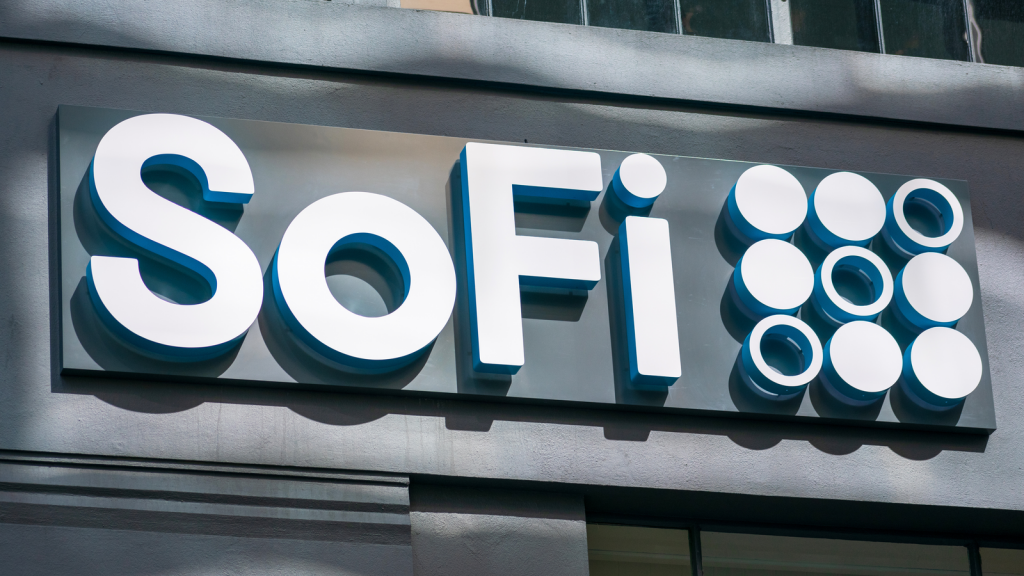
SoFi (NASDAQ:SOFI) stock justified Wall Street’s love by reporting big growth and a narrower-than-expected loss on July 31.
For the quarter ending in June, the company lost $47.5 million, 6 cents per share, on revenue of $498 million. What mattered to analysts was that revenue was up 37% and Earnings Before Income Taxes, Depreciation and Amortization jumped 278%.
Full disclosure. I’m one of those analysts. I became so enamored with SoFi during the 2021 tech boom I bought some shares for my retirement account. I’m still sitting on a loss.
A Closer Look at SOFI Stock
I bought 300 shares in 2021. I could have seen a 40% gain but hung in with it, and I’m now sitting on a loss.
I’m not alone. TV analyst Jim Cramer bought into the SoFi hype. So did other analysts, although in 2023 some don’t want you to know that. Bank of America (NYSE:BAC) reduced its rating on SoFi two weeks before the latest earnings report.
What I like about SoFi stock is that it’s everywhere a fintech (or neobank, as it’s called now) could be. It has a bank charter, offers software for banking and brokerage, trades stocks. You can even get crypto.
SoFi also has a much bigger brand than its size would suggest. That’s because CEO Anthony Noto was once CFO of the National Football League and got SoFi’s name on the new LA stadium.
Still, there remains a hangover from the 2022 tech wreck. Even at its August 1 price of $10.78 per share, it’s down 31% from its high.
Many Tipranks analysts have walked away, with 4 now saying sell it and just 7 saying buy. The average one-year price forecast is down 16% from where it’s trading now.
Turning the Corner
SoFi still has two big problems. Its first business was student loans. While it can soon expect payments on those to resume, I worry about defaults. Second, it’s mainly funded through equity, not its bank deposits.
Noto has answers to the problems. SoFi is now making nearly 10 times more personal loans than student loans, which are now just one-third of its lending. SoFi is now increasingly a real bank. It had $12.6 billion in deposits at the end of June, up from $7.3 billion just six months before.
SoFi is still losing money on financial services. But the loss was just $4.3 million last quarter, instead of the $53.7 million of a year ago. Its technology platform remains small part of the whole, with year-over-year growth of just 4%.
But Noto insists all the pieces for profit are now together. He expects $2 billion in revenue for all of 2023, and some analysts are coming around. As one Truist (NYSE:TFC) analyst told Barron’s, SoFi is blasting a hole in his bank’s business. “Legacy banks do not and cannot replicate this model,” he said.
The Bottom Line
When I first began covering SoFi, I emphasized that it was a long-term play, a stock investors should wait on.
I still hold that view. The physical footprint of most banks is wasted money. Banks are becoming apps, as brokers already are. SoFi is seeing growth across its product line, with industry trends and demographics a wind at its back.
As interest rates start to back off, the strength of the SoFi model will become apparent. The bank is going to keep gaining share because its low-cost model, and variable rates, let it offer depositors 4.4% on their money. Companies outside the traditional banking business are going to offer services through Galileo. There’s growth ahead, and profit.
On the Internet, no one knows SoFi isn’t JPMorgan Chase (NYSE:JPM). As that message takes hold, expect this stock to rise.
As of this writing, Dana Blankenhorn had a LONG position in SOFI. The opinions expressed in this article are those of the writer, subject to the InvestorPlace.com Publishing Guidelines.






